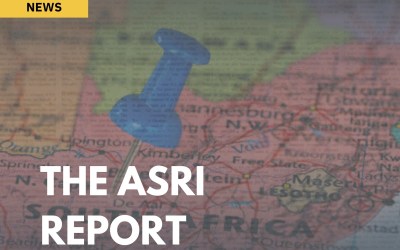
Azra Hoosen | ah@radioislam.co.za
18 March 2025 | 12:00 CAT
2 min read
South Africa is facing a historic budget standoff, with lawmakers still debating Finance Minister Enoch Godongwana’s fiscal plan. At the heart of the issue is the proposed VAT hike, but tensions go beyond that—political parties are deeply divided over broader social and economic concerns.
Political Economist Professor Jannie Rossouw clarified that while the budget has not been officially “rejected”, it is certainly meeting opposition. “We use the word loosely, not in the sense of opposition to politics, but some political parties are opposed to the budget. But as such, the budget has not been rejected,” Rossouw explained.
He believes the ANC miscalculated by assuming it could push the budget through without securing enough support. “It seems that the ANC failed to understand that it no longer holds the majority in parliament. It acted as if it still had the majority,” he said.
Despite the uncertainty, Rossouw reassured South Africans that government operations would not grind to a halt just yet. “Government departments can continue to spend in the interim even if the budget is not approved. However, if the budget is not approved in its current format, the proposed increases in social grants and pensions will not be paid,” he said.
Rossouw noted that this situation could have significant political consequences. “If the government cannot get its budget passed by parliament, normally such a government feels obliged to resign because it is viewed as a motion of no confidence,” he said. He also questioned whether the budget represents the government of national unity or merely the ANC. “In my view, the ANC overplayed its hand by tabling this budget before it made sure that it had the necessary support from its government of national unity partners,” he added.
As for the VAT hike itself, Rossouw believes there will be more back-and-forth before anything is final. “It has been rumoured that the ANC might even approach parties outside of the government of national unity, for instance, parties in the progressive caucus, to try and get the necessary support for the approval of this budget,” he revealed.
But beyond the immediate budget battle, Rossouw believes South Africa’s real problem is structural. “We need to restructure at the macro level to ensure higher economic growth. We are in this budget difficulty because we’ve not had economic growth at a sufficient rate over the past 15 years,” he said.
He expressed concern about the impact of raising VAT. “An increase in VAT will lead to an acceleration in inflation. The other problem with the VAT increase is the cost to the economy of implementing a higher VAT rate. The National Treasury has not worked out what that cost would be. I asked them, and they couldn’t give me an answer. My own calculation is about a billion rands in cost to the economy,” he said.
Highlighting key structural reforms, Rossouw called for a smaller cabinet, changes to Black Economic Empowerment (BEE), and economic deregulation. “We need to get rid of a lot of deputy ministers. I really don’t know what the deputy minister does. I’ve never seen the job descriptions,” he said.
He also suggested replacing BEE with a skills transfer model. “BEE, as we have it at the moment, made a few people exceptionally wealthy and left a lot of people in poverty. What we need is skills transfer to help poor people get themselves out of poverty,” Rossouw argued.
He stressed the need to cut red tape. “Our economy is completely overregulated, and the government is losing its ability to apply its own regulations. We need deregulation to allow the economy to gain momentum. We need higher economic growth to ensure that people can find jobs,” he said.
For now, South Africans are left watching as political parties negotiate behind closed doors, deciding the fate of the budget—and the country’s financial future.
LISTEN to the full interview with Ml Junaid Kharsany and Professor Jannie Rossouw, Political Economist, here.








0 Comments